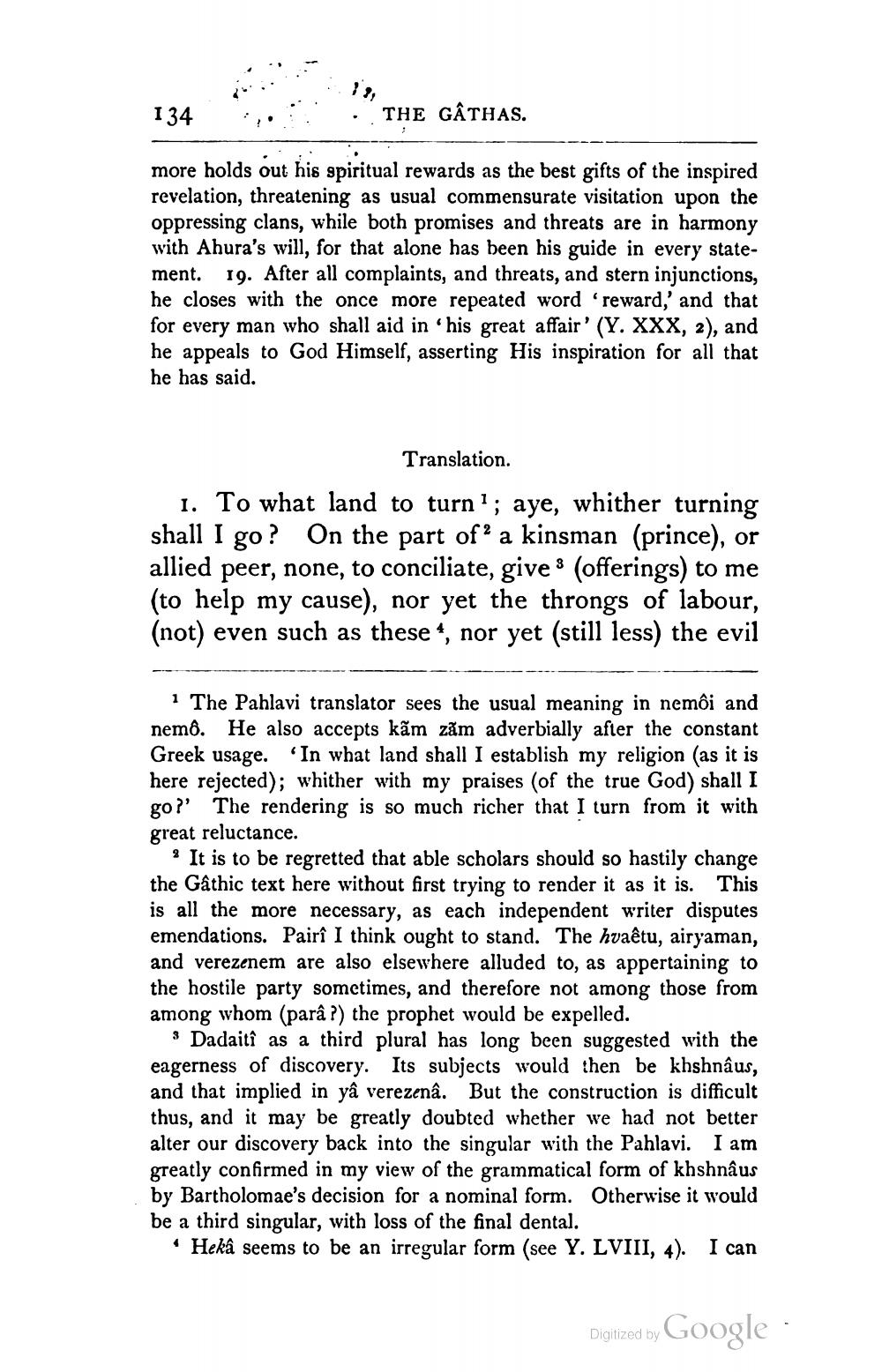________________
134
:,.
. THE GÂTHAS.
more holds out his spiritual rewards as the best gifts of the inspired revelation, threatening as usual commensurate visitation upon the oppressing clans, while both promises and threats are in harmony with Ahura's will, for that alone has been his guide in every statement. 19. After all complaints, and threats, and stern injunctions, he closes with the once more repeated word 'reward,' and that for every man who shall aid in his great affair' (Y. XXX, 2), and he appeals to God Himself, asserting His inspiration for all that he has said.
Translation.
1. To what land to turn?; aye, whither turning shall I go? On the part of? a kinsman (prince), or allied peer, none, to conciliate, give 3 (offerings) to me (to help my cause), nor yet the throngs of labour, (not) even such as these 4, nor yet (still less) the evil
1 The Pahlavi translator sees the usual meaning in nemôi and nemô. He also accepts kām zām adverbially after the constant Greek usage. In what land shall I establish my religion (as it is here rejected); whither with my praises (of the true God) shall I go?' The rendering is so much richer that I turn from it with great reluctance.
* It is to be regretted that able scholars should so hastily change the Gathic text here without first trying to render it as it is. This is all the more necessary, as each independent writer disputes emendations. Pairî I think ought to stand. The hvaêtu, airyaman, and verezenem are also elsewhere alluded to, as appertaining to the hostile party sometimes, and therefore not among those from among whom (parâ ?) the prophet would be expelled.
3 Dadaitî as a third plural has long been suggested with the eagerness of discovery. Its subjects would then be khshnâus, and that implied in yâ verezenâ. But the construction is difficult thus, and it may be greatly doubted whether we had not better alter our discovery back into the singular with the Pahlavi. I am greatly confirmed in my view of the grammatical form of khshnâus by Bartholomae's decision for a nominal form. Otherwise it would be a third singular, with loss of the final dental.
• Hekâ seems to be an irregular form (see Y. LVIII, 4). I can
Dialized by Google
Digitized by




